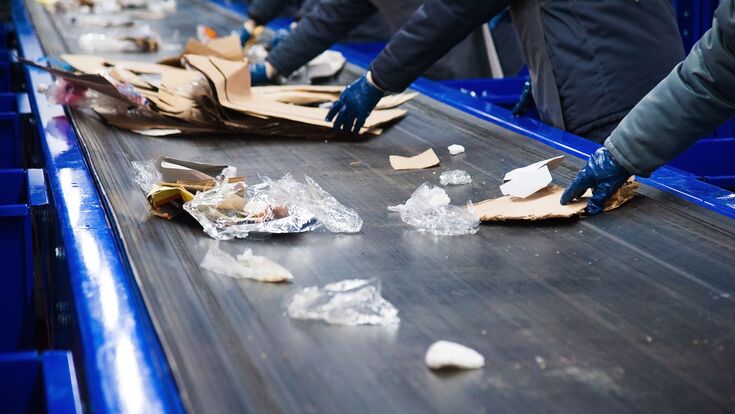Adequate Waste Management : Access to recycling systems: direct link to a positive change

The most recent scientific positions and reports are making similar predictions: the window of opportunity to beat the planetary crisis that will hinder (or even suppress) life on Earth is nearing. Accelerating consistent actions to reverse the current situation is mandatory for almost every industrial and economic sector, and better waste management is necessary in all cases.
The 2030 Agenda provides important guidance for the future, with the 17 sustainable development goals and also the 140 targets giving a direct indication of the path humanity must follow in the different areas to advance towards a liveable future.
There is a recommendation – and a need – to advance, following the 2030 Agenda, but unfortunately there are still people without access to basic sanitation services and infrastructure for an adequate waste management system. These are the most vulnerable people, who are living on the edge of civilisation in the 21st century. It’s absolutely unacceptable to have people isolated from basic human rights during this epoch.
Thus, we cannot afford to continue with business as usual. Current events are clearly showing that we need to change the way (or ways) in which we move, produce and consume. The concept of progress and how we deal with the planet, starting with our local environment, must be reconditioned in order to restore a positive relationship with nature.
Want to stay up-to-date on our content? Subscribe to our newsletters!
There are still people without access to basic sanitation services and infrastructure for an adequate waste management system.
Sound waste management continues to be a huge global challenge that must be considered a priority in every country, both to support an equitable transition to a better system, with the closure of dumpsites and cessation of open burning of waste as a necessary and immediate step, and to advance towards the required steps to facilitate the transition to a circular economy, enabling closed loops for materials and substances and creating consistent markets for secondary resources and by-products.
Despite the importance and urgency, this subject is still not included on the priority list of most authorities, nor is it a trending topic for common citizens. Environmental protection, sustainability and waste management do not rank high on the list of topics people want to discuss during a family reunion or office conversation.
The best way to change this situation and to make this topic more visible and part of the daily concerns in every corner of the world is by actively encouraging individuals and families to develop daily tasks that will bring them direct benefits, in opposition to the myth that waste-related activities are useless and without any added value.
The initial step towards positive change is to create a direct link between each individual and a task that can be implemented both for his/her benefit and for the local community, which will ultimately also benefit his/her household. An alternative way of achieving this direct link is to provide clear information and easy access to recycling systems by motivating households to include simple source separation of waste as an enjoyable item on their to-do list.
Recycling might not solve all the problems created by the increased quantities of waste generated worldwide, but it is the easiest way to engage citizens in a relevant waste-related activity and the fastest way to transform waste items into secondary resources, generating jobs and wealth for millions of people and with a positive impact on the environment.

